NIH Distinguished Speakers
Previous Presenters
Dr. Naomi Chaytor
Associate Professor
Elson S. Floyd College of Medicine
Washington State University
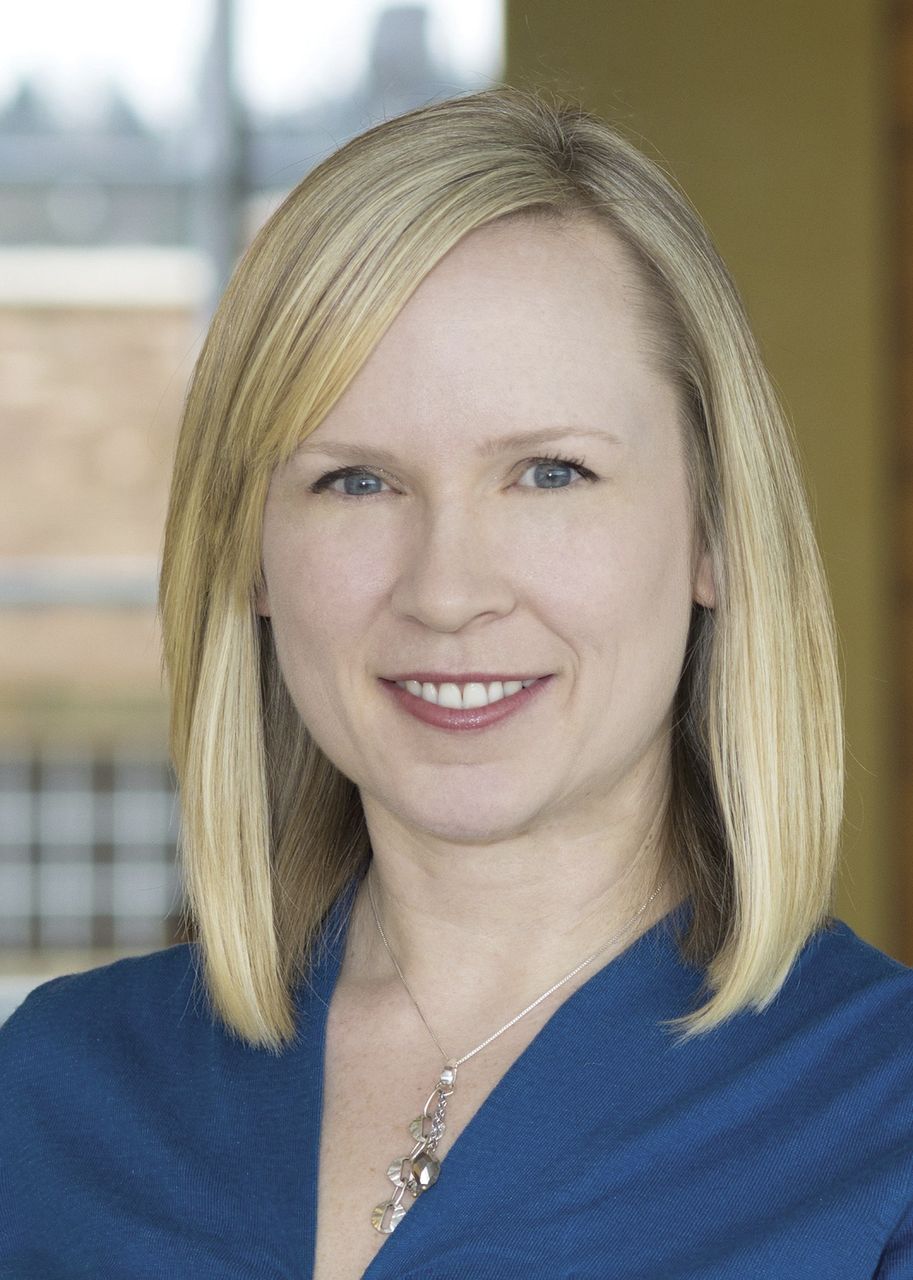
Video of the Talk (4/11/18)
Dr. Troy McDaniel
Assistant Professor
School of Computing, Informatics, and Decision Systems Engineering
Arizona State University
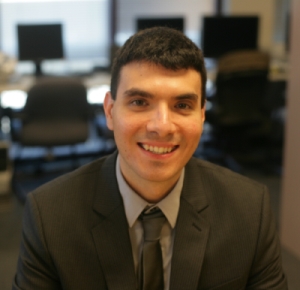
Video of the Talk (4/4/18)
Judy Cornish
Attorney, Founder
Dementia & Alzheimer's Wellbeing Network
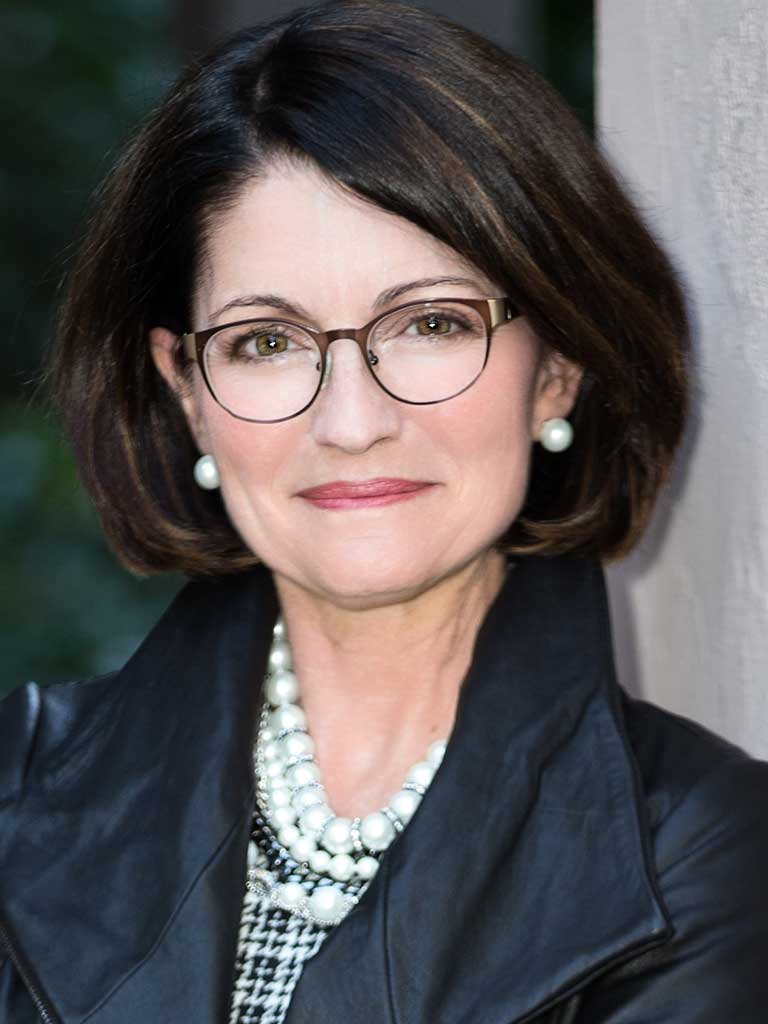
Dr. Gina Sprint
Assistant Professor
Department of Computer Science
Gonzaga University
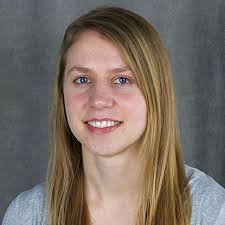
Video of the Talk (3/21/18)
Dr. Steven Woods
Professor
Department of Psychology
University Houston
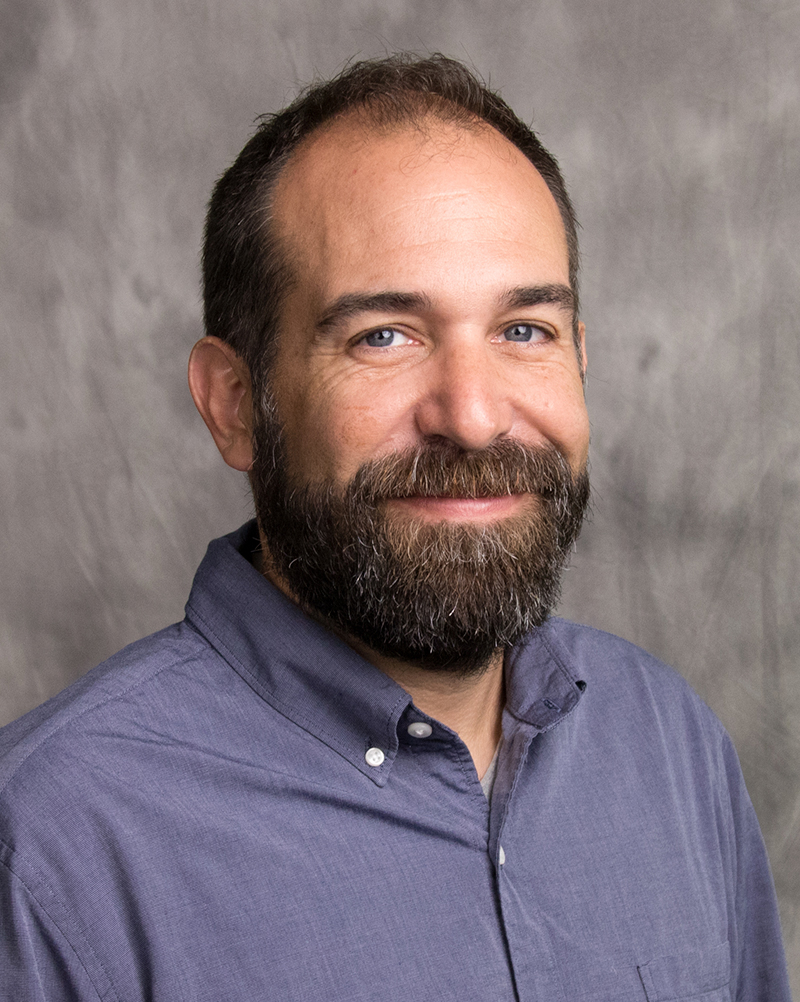
Video of the Talk (3/21/18)
Dr. Momotaz Begum
Assistant Professor
Department of Computer Science
University of New Hampshire
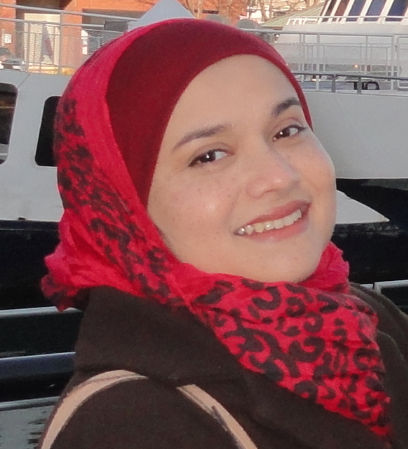
Video of the Talk (3/7/18)
View Dr. Begum's talk, "'This is how you do it': Learning Concepts from Human Demonstrations."
Dr. Tanzeem Choudhury
Associate Professor
People-Aware Computing Lab
Cornell University
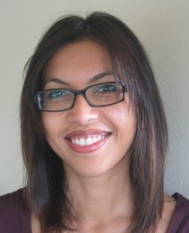
Dr. David Sprott
Associate Dean
Carson College of Business
Washington State University
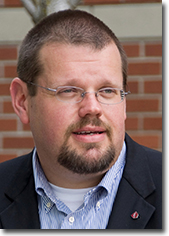
Video of the Talk (2/7/18)
View Dr. Sprott's talk, "Social Influence and the Question-Behavior Effect."
Dr. David Kutzik
Professor
College of Arts and Sciences
Drexel University
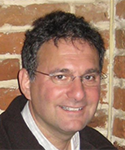
Video of the Talk (1/10/18)
Dr. Don McMahon
Assistant Professor
College of Education
Washington State University
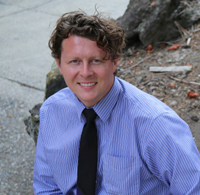
Video of the Talk (11/28/17)
View Dr. McMahon's talk, "Augmented Reality and Virtual Reality in Inclusive Education."
Dr. Doug Weeks
Director of Research
St. Luke's Rehabilitation Institute
Adjunct Professor
Elson S. Floyd College of Medicine
Washington State University

Video of the Talk (11/16/17)
View Dr. Weeks' talk, "St. Luke's Rehabilitation Institute Overview"
Dr. Matthew Taylor
Assistant Professor
School of Electrical Engineering and Computer Science
Washington State University
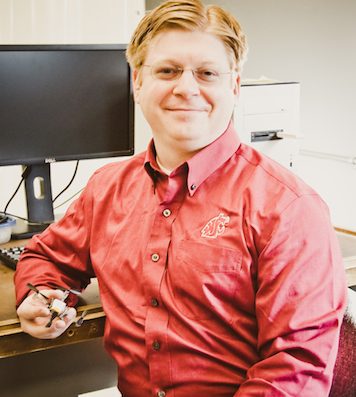
Video of the Talk (10/26/17)
View Dr. Taylor's talk on robotics and gerontechnology.
Dr. Ka'imi Sinclair
Assistant Professor
Institute for Research and Education to Advance Community Health
College Of Nursing
Washington State University
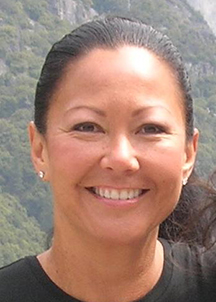
Video of the Talk (10/17/17)
View Dr. Sinclair's talk, "Translational, Dissemination, and Implementation Research."
Dr. Keith Diaz Moore
Dean
College of Architecture + Planning
University of Utah
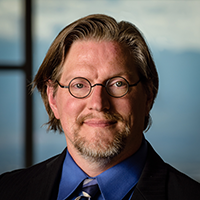
Video of the Talk (10/12/17)
View Dr. Moore's talk, "Healthy Aging: An Environmental Gerontology Perspective."
Dr. Kathleen Insel
Professor, RN
College of Nursing, Biobehavioral Health Science Division
University of Arizona
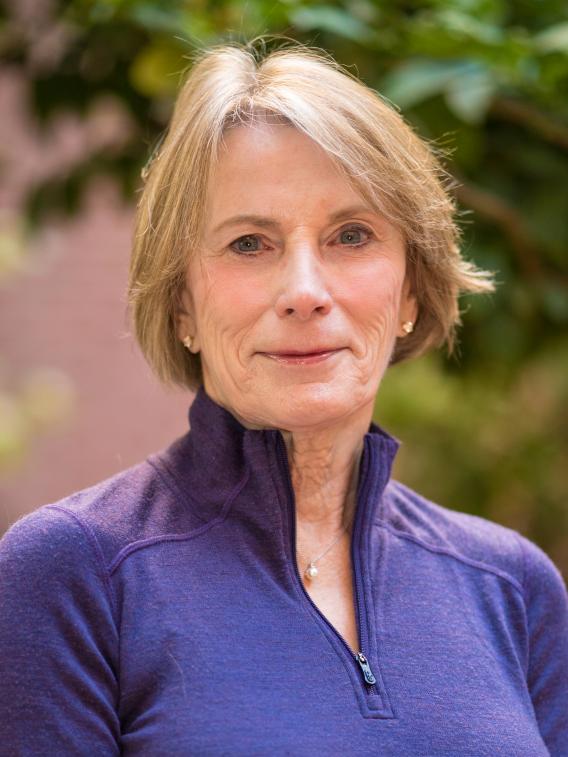
Video of the Talk (9/28/17)
View Dr. Insel's talk, "Cognitive Aging and Self-Management, Opportunities for Technology."
Dr. Shelly Fritz
Assistant Professor
WSU College of Nursing
Washington State University Vancouver
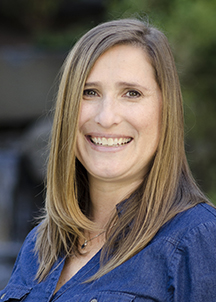
Video of the Talk (9/19/17)
View Dr. Fritz's talk, "Identifying Varying Health States in Smart Home Sensor Data."
Dr. Lorraine Evangelista
Professor and Associate Director of Doctoral Program
Sue and Bill Gross School of Nursing
University of California Irvine
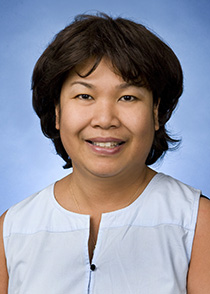
Video of the Talk (9/12/17)
Dr. Jason Runyan
Associate Professor of Psychology
Indiana Wesleyan University
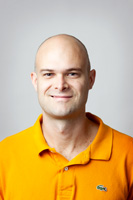
Bio:
Jason Runyan earned his master's degree in neuroscience from the University of Texas and his doctorate from the University of Oxford, where he did work in philosophical psychology. He is currently an Associate Professor in Psychology, and in the Honors College, at Indiana Wesleyan University. His work has ranged from examining the neurobiology of long-term memory, and working memory, to examining philosophical issues concerning free will. His current work brings a philosophical and experimental approach to addressing questions about human agency and dispositions. To this aim, he has co-developed several smartphone-based ecological momentary assessment (EMA) systems, and is a co-founding partner of LifeData - a startup tech company that provides software for psychological research.
Talk Abstract:
Over the past six years, advances in mobile app technology have made the examination of life as it's lived possible in unprecedented ways. With devices already integrated into daily life, it is now possible to repeatedly assess psychological, behavioral, physiological and situational variables "in the wild". This form of assessment is often called ecological momentary assessment (EMA). In this talk, I will introduce EMA and explore what it promises to bring to the future of behavioral science. I will discuss EMA design types and what each allows. I will then introduce a smartphone-based EMA system that I have helped design-the LifeData System-and discuss the primary type of statistical analysis used for EMA: multilevel modeling. This form of modeling enables us to make within-person associations and predictions, thereby treating people as individuals (rather than merely groups) in our statistical analyses. Throughout the talk, I will draw illustrations and examples from recent work in our lab, including work on in-the-moment gratitude and compassion.
Video of the Talk (4/12/16)
Dr. Sarah Farias
Associate Professor of Neuropsychology
Lawrence J. Ellison Ambulatory Care Center
University of California, Davis

Bio:
Dr. Sarah Tomaszewski Farias is a clinical and research neuropsychologists and is a Professor in the Department of Neurology at the University of California, Davis (UC Davis). She directs the California Alzheimer's Center at UC Davis, Sacramento. She also serves as Co-Director for the Clinical Core of the UC Davis Alzheimer's Disease Center, which is funded by the National Institute of Aging. Her research interests include the development of new measures of everyday functioning applicable to older adults with cognitive impairment and dementia, and the study of how cognitive and non-cognitive factors affect everyday functioning and ways in which older adults compensate for their cognitive losses in daily life. Her research in this area has been funded by the National Institute of Aging for the last 10 years. She has over 50 publications, primarily related to cognitive aging and dementia. Dr. Farias is board certified in Clinical Neuropsychology by the American Board of Professional Psychology and is the Director of the UC Davis Clinical Neuropsychology Postdoctoral Fellowship program. She also directs clinical neuropsychology services through both the Department of Neurology and the Alzheimer's Disease Center at UC Davis.
Talk Abstract:
Declines in cognitive function among older adults, while not universal, are common and in many cases are associated with neurodegenerative diseases such as Alzheimer's Disease (AD). Cognitive decline and other factors can eventually affect an older adult's ability to manage everyday tasks like driving, managing finances, managing medications etc. This talk will cover when and how functional declines develop throughout the course of AD and related disorders, as well as various factors that increase or decrease functional resilience.
Video of the Talk (3/1/2016)
Dr. Rock Leung
User Experience Researcher

Bio:
Dr. Rock Leung is a user experience researcher who helps people better understand users' needs and behaviors to inform the design of useful and usable technology. He has conducted user research for a variety of companies (e.g., SAP, a small startup). He has a PhD in Computer Science from the University of British Columbia, specializing in Human-Computer Interaction research. His graduate work on improving the learnability of mobile computing devices for older adults has been published in prominent journals and conferences. At SAP, he also initiated and supported a number of academic-industry collaborations, to explore applying research findings and ideas from academia to products and internal tools.
For more information, go to www.rockleung.com.
Talk Abstract:
Many potentially useful technological solutions are being researched and developed for older adults, but what can be done if older adults have problems learning to use them? In this talk, Dr. Rock Leung will discuss the Human-Computer Interaction research work he and his colleagues conducted on improving the learnability of computer user interfaces (UIs) for older adults. His research group focused on mobile computing devices (e.g., smartphones), which offer support that may be especially valuable to older adults but have been shown to be difficult for many older adults to use. In this talk, Dr. Leung will describe why older adults often have difficulty learning to use mobile devices and how they seek to learn to use such devices. He will then present his research on a number of design approaches for increasing UI learnability, such as improving graphical icons, using reduced-functionality UIs, and adding real-time learning support. He hopes the audience will gain new insights about older adults and ideas for helping this population learn to use the UIs in their projects. No design background is needed to understand this talk.
Video of the Talk (2/16/2016)
Dr. Jesse Hoey
Associate Professor
Leader of the Computational Health Informatics Lab (CHIL)
University of Waterloo

Bio:
Dr. Jesse Hoey is an associate professor in the David R. Cheriton School of Computer Science at the University of Waterloo, where he leads the Computational Health Informatics Laboratory (CHIL). He is also an adjunct scientist at the Toronto Rehabilitation Institute in Toronto, Canada, where he is co-leader of the AI and Robotics Research Team. He has published over twenty peer-reviewed scientific papers in highly visible journals, and over fifty peer-reviewed conference and workshop papers. His research focuses on planning problems in large scale real-world uncertain domains, and in particular on probabilistic and decision-theoretic reasoning methods for solving these problems. He also works on computational social science, affective computing, computer vision and ubiquitous computing. He applies these ideas primarily in the development of systems that help persons with a cognitive disability (e.g. Alzheimer's disease) to perform activities of daily living. He is the program chair for the 10th EAI International Conference on Pervasive Computing Technologies for Healthcare, and the Chair of the Alzheimer's Association International Society to Advance Alzheimer's Research and Treatment (ISTAART) Technology Professional Interest Area (TPIA). More information on Dr. Hoey can be found at his website at www.cs.uwaterloo.ca/~jhoey.
Talk Abstract:
Over the past decade, Dr. Hoey's team has developed probabilistic, decision-theoretic, and vision-based technologies that can assist persons with cognitive disabilities with a range of activities using monitoring and cueing (prompting). Although these technologies are reasonably effective, the interventions (e.g. audio-visual cues or prompts) are rendered (mostly) independently of users and context. In this talk, he will discuss how this is a significant barrier to adoption, and how this barrier can be lifted by automated reasoning about the personal (socio-cultural and affective) identities of users, and about the affective and emotional delivery of interventions. He will introduce a socio-cultural reasoning engine called "Bayesact" that can be used to provide this level of affective reasoning. Bayesact is based on 25 years of research in sociology and cognitive psychology. Bayesact can learn the affective identity of a user during an interaction, and can tailor prompts/cues/treatments/interventions to specific individuals in a way that ensures smoother and more effective uptake and response. He will give an introduction to this reasoning engine, and will discuss how affective reasoning could be used to create truly adaptive treatment and therapeutic technologies.
Video of the Talk (10/20/2015)
Dr. Andrew Sixsmith
President of the International Society for Gerontechnology
Professor and Director of Gerontechnology Research Center
Deputy Director of Interdisciplinary Research in the Mathematical and Computational Science (IRMACS) Centre
Simon Fraser University

Bio:
Andrew Sixsmith is Professor and Director of the Gerontology Research Centre at Simon Fraser University and is President of the International Society of Gerontechnology and was Chair of the 2010 World Conference of the Society. He has been particularly involved in the strategic development of research in the area of technology for independent living and has attracted funding for major research projects in Canada, the UK and the European Union. In December 2014, he was appointed Scientific Director of AGE-WELL NCE Inc., a Canada-wide network to harness the potential of technology for the well-being of seniors.
Talk Abstract:
AGE-WELL is a new Canadian research network that aims to help older people to maintain their independence, health and social participation through accessible technologies. This presentation discusses the key research areas, but focuses on how this can drive innovation and how researchers can respond to some key challenges, including: working together as a team; innovation in the health sector; commercialization of real-world products and services.
Video of the Talk (10/13/2015)
Dr. Charles Consel
Head of the Phoenix research group
Professor of Computer Science
University of Bordeaux / INRIA / LaBRI

Bio:
Charles Consel is a professor of Computer Science at Bordeaux INP. He served on the faculty of Yale University, Oregon Graduate Institute and the University of Rennes. His research contributions cover programming languages, software engineering, operating systems, pervasive computing, and assisted living. He leads the Phoenix group at Inria that conducts multi-disciplinary research to design, develop, deploy and assess assistive computing supports. This research combines (1) Cognitive Science to study user needs and make a rigorous assessment of assistive services; (2) Sensing and actuating expertise to support the user based on accurate and rich interactions with the environment; (3) Computer Science to support and guide all the development process of the assistive services.
Talk Abstract:
To address the challenge of aging in place, researchers are envisioning a range of assistive support approaches, leveraging the rich functionalities of a continuous stream of new devices and services. Yet, technology adoption in older adults is still low, often because of a technology/designer-centered design of assistive technologies that do not meet the requirements of older adults. This shortcoming becomes insurmountable when the assistive support targets the home because it is intimately intertwined with the user. We present a multidisciplinary project aimed to design, develop, deploy, and assess an assisted living platform for older adults, named HomeAssist. This platform leverages expertise in psychology and aging, human factors, cognitive science, and computer science. HomeAssist has been deployed in the homes of 24 older adults (matched with 24 control counterparts not equipped) and is currently being assessed. Although ongoing, the preliminary results of this field study show that the platform is well adopted (highly accepted and usable) by the participants and their families or caregivers. In this talk, we first examine the salient features of HomeAssist and how they address the needs and specificities of older adults. Then, we outline two recent contributions: 1) A unifying notification system that allows to scale up assistive services and 2) An approach to activity detection based on routine verification.
Video of the Talk (7/7/2015)
Dr. Sherry Willis
Research Professor
Department of Psychiatry and Behavioral Sciences
University of Washington

Bio:
Dr. Sherry Willis is a researcher in cognitive aging. Dr. Willis' research has focused on age-related cognitive changes in later adulthood. In particular she is known for her work on behavioral interventions to remediate and enhance cognitive performance in community-dwelling normal elderly. She is co-Director of the Seattle Longitudinal Study and a Principal Investigator on the ACTIVE study, a randomized controlled trial to examine the effects of cognitive interventions in the maintenance of everyday functioning in at risk community dwelling elderly, funded by NIA. In addition to her cognitive intervention research, Dr. Willis has conducted programmatic research on changes in everyday problem solving competence in the elderly and cognitive predictors of competence. She and colleagues have developed several measures of Everyday Problem Solving. She has served as President of Division 20, Adult Development and Aging, American Psychological Association. She currently has funding from NIA (MERIT Award) to examine midlife predictors of cognitive risk in old age..
Talk Abstract:
This presentation will provide an overview of recent findings regarding changes in cognitive functioning in later adulthood. Our focus will be primarily on cognitively normal or healthy aging. Differences in crosssectional versus longitudinal approaches to the study of cognitive aging will be reviewed, with a focus on longitudinal studies, outlining the cognitive changes occurring from young adulthood through very old age. We will discuss findings regarding birth cohort differences in longitudinal cognitive change and implications of cohort findings for research and social policy. Health, psychosocial and demographic factors that moderate cognitive aging will be considered. We will then present findings on recent research from cognitive intervention studies, examining the magnitude of training effects, their temporal durability, and potential transfer effects. Special attention will be given to findings from the ACTIVE trial, the largest randomized clinical trial in normal elderly. We will discuss some of the major challenges in intervention research and future directions. Finally, we draw implications for maintenance and possibly enhancement of cognitive health.
Video of the Talk (1/12/2015)
Upcoming Talks
If you would like to have a one on one meeting with any of our future speakers, please contact Jason Minor at jason.a.minor@wsu.edu. Please indicate your preferred meeting time.
There are currently no upcoming talks


This program is funded by NIA grant R25AG046114 and is carried out as a collaborative effort between the Center for Advanced Studies in Adaptive Systems (CASAS) and the Department of Psychology at Washington State University.